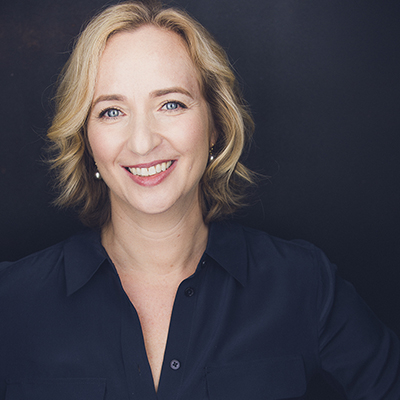
Insight
Trump risks making the same economic mistakes as Biden

There is one surefire way to know when someone is trying to pull one over on you: If they're promising something for nothing — whether it's a tax cut that pays for itself or an investment strategy that offers a higher return and lower risk — then you need to be on your guard.
The Biden administration believed it could spend trillions of dollars without overheating the economy, and it got inflation. It tried to revive the semiconductor industry with huge subsidies, then required any recipients to provide child care, adhere to crippling regulations and hire only unionized labor. It bought into the promise that the US could build a green economy to save the planet without anyone having to pay more or make do with less. In the end, the economy recovered after the pandemic, but real wages barely improved, inflation risk returned, and the US is deeper in debt.
President Donald Trump's administration is already making some of the same mistakes. It says tariffs won't cost consumers or domestic producers — in the long run. It argues that if the government reduced regulations and operated more efficiently, there would be enough economic growth to pay for tax cuts and reduce worries about the debt.
None of this is likely. Yes, the government needs to cut waste and excessive regulations, and some tax cuts will boost growth. But even in the best-case scenario, the added growth wouldn't be enough to make them pay for themselves, let alone cover the unfunded entitlements coming due it the next decade.
Of course, politicians promising something for nothing is hardly a novel phenomenon. And it is not just in politics; almost every financial scam or bubble is rooted in the myth that higher returns can be achieved with less risk. But the belief in a free lunch has become more common lately.
Two pieces of conventional wisdom that emerged after 2008 fed this mass delusion, both of them are wrong. One is that it is better to provide too much economic stimulus rather than too little. The other is that worries about inflation and higher interest rates were things of the past.
The American Recovery and Reinvestment Act, signed in 2009, cost more than $800 billion, but some economists argued at the time (and still believe) that it should have been bigger, saying it helped make the recovery from the 2008 recession needlessly slow. Meanwhile, the
What policymakers took away from this experience was that no amount of spending or expansionary monetary policy would increase interest rates or inflation. Ergo, they could stimulate as much as they wanted, in just about any way they wanted, without cost. As long as interest rates are near zero, this is kind of true; after all, it is nearly costless to run up debt, and it appears to pay off so long as it produces some positive growth.
Alas, no financial condition lasts forever, and this includes near-zero interest rates. Debt, however, does tend to be forever.
Low rates enabled this delusion. But it runs deeper: The last decade saw a backlash from the left and the right against neoliberalism, the belief that more market-based policies and freer trade would bring about better economic growth. As my colleague
The alternative — that if countries traded less, did all they could to boost demand and allowed the government to direct commerce — made for a much more seductive pitch. The result, so we were told, would be more certainty, more growth, more wealth and even more wealth equality. The failure of Bidenomics demonstrated just how deluded that view is. In economies as in financial markets, there is no growth without risk, and the bill eventually comes due. Every policy choice comes with winners and losers, cost and benefits.
Tradeoffs, in other words. If anyone is telling you otherwise, they are trying to sell you something.
(COMMENT, BELOW)
Allison Schrager, a Bloomberg columnist, is a senior fellow at the Manhattan Institute and a contributing editor of City Journal.
Previously:
• Is being single bad for the economy?
• Our pensions shouldn't be used to juice the economy
• A soft landing won't mean the economy is safe
• The 30-year mortgage is saving the U.S. economy … or is it?
• The one true secret to successful investing
• Less work, more burn-out
• When did risk become a bad word in the U.S.?
• AI-proofing your career starts in college
• Biden has to learn the same lesson as SVB
• Say it with Rubio: Changing clocks is stupid
• Sure, we'll return to the office in 2023 but not to stores
• How to manage the biggest risk of all: Uncertainty
• If you think U.S. pensions are safe, just wait
• Harry and Meghan and the perils of superstar culture
• Norman Rockwell's economy is never coming back
• Burned by crypto? Don't learn the wrong lesson
• Quiet Quitters are looking in the wrong place for meaningful work
• America's MBAs are the latest skeptics of capitalism
• Generation Z is getting a harsh lesson in stock risk
• The biggest threat to the U.S. economy is policymakers
• Buck up, boomers. You're still better off than your parents
• How to manage the biggest risk of all: uncertainty
• Startup boom is the kind of risk-taking Americans need
• Gen Z is too compliant to achieve greatness
• A bigger child tax credit isn't the poverty solution we need
• Finding your power in a higher-priced world
• The Biden administration's plans to double the tax rate on capital gains will prove costly to all Americans, not just the wealthy
• WARNING: Feel Good Now --- Pay Later: Stimulus is crammed with goodies but makes no economic sense
• The 'Stakeholder' Fallacy: Joe Biden's vision of capitalism is a recipe for failure


 Contact The Editor
Contact The Editor
 Articles By This Author
Articles By This Author